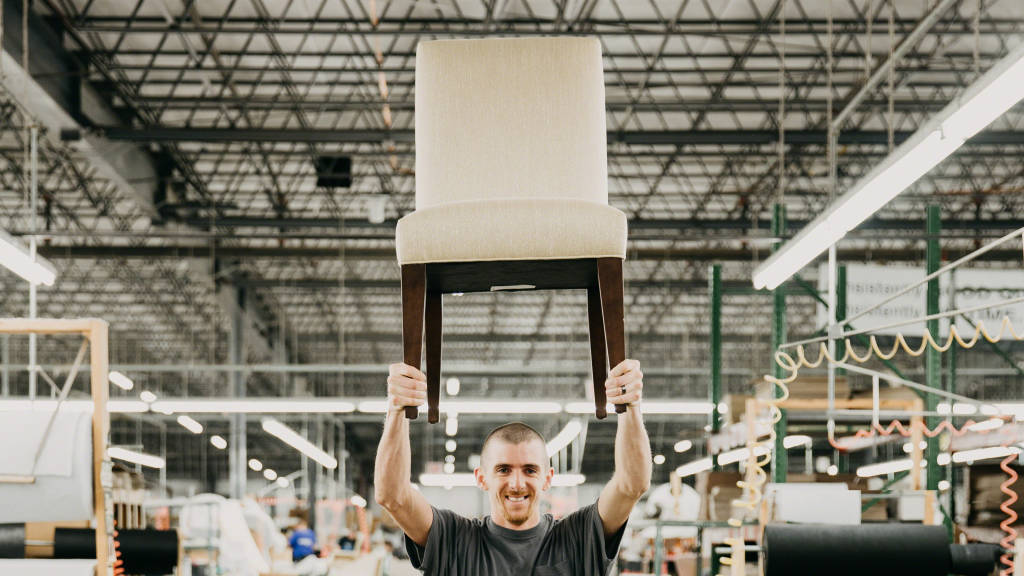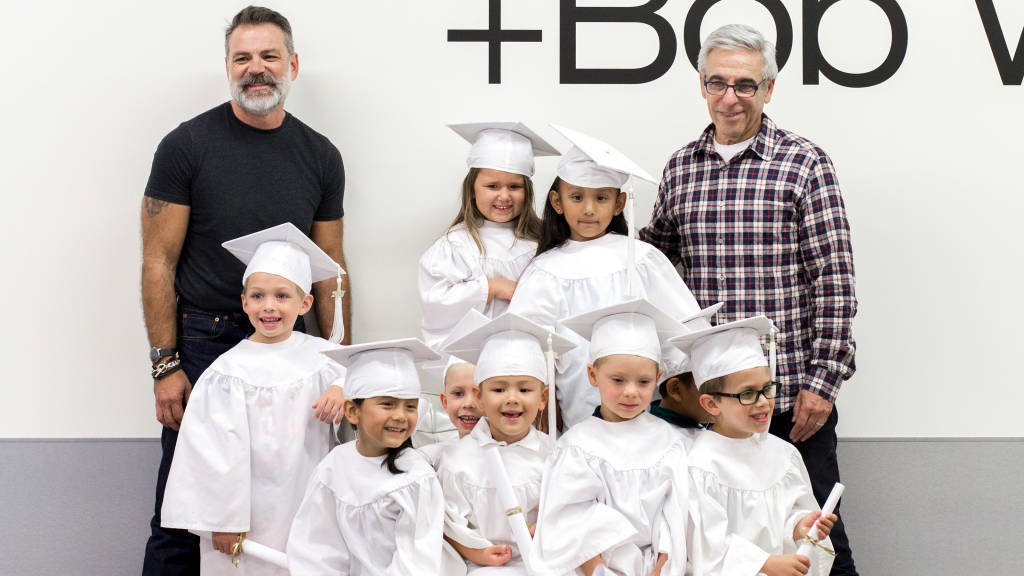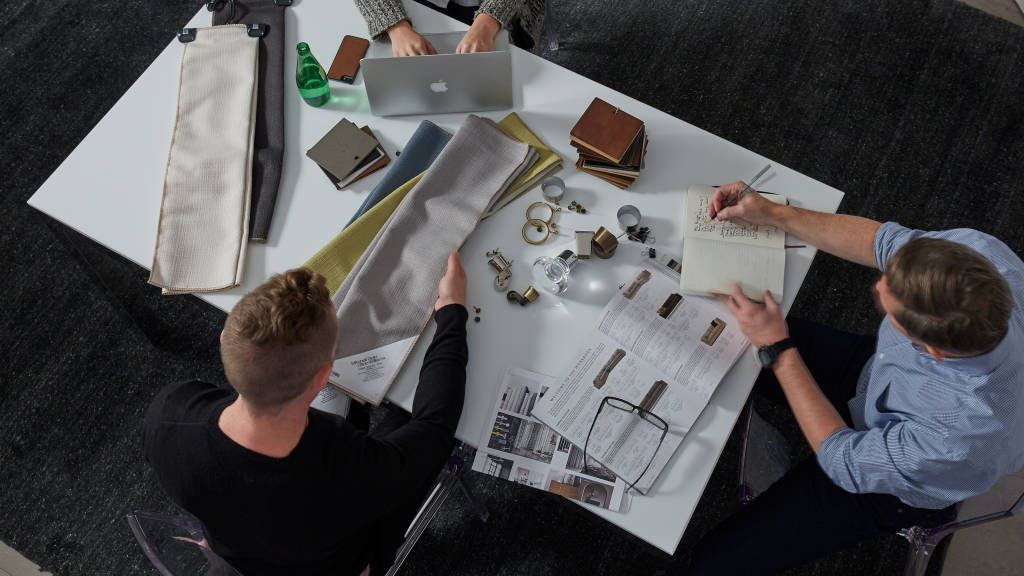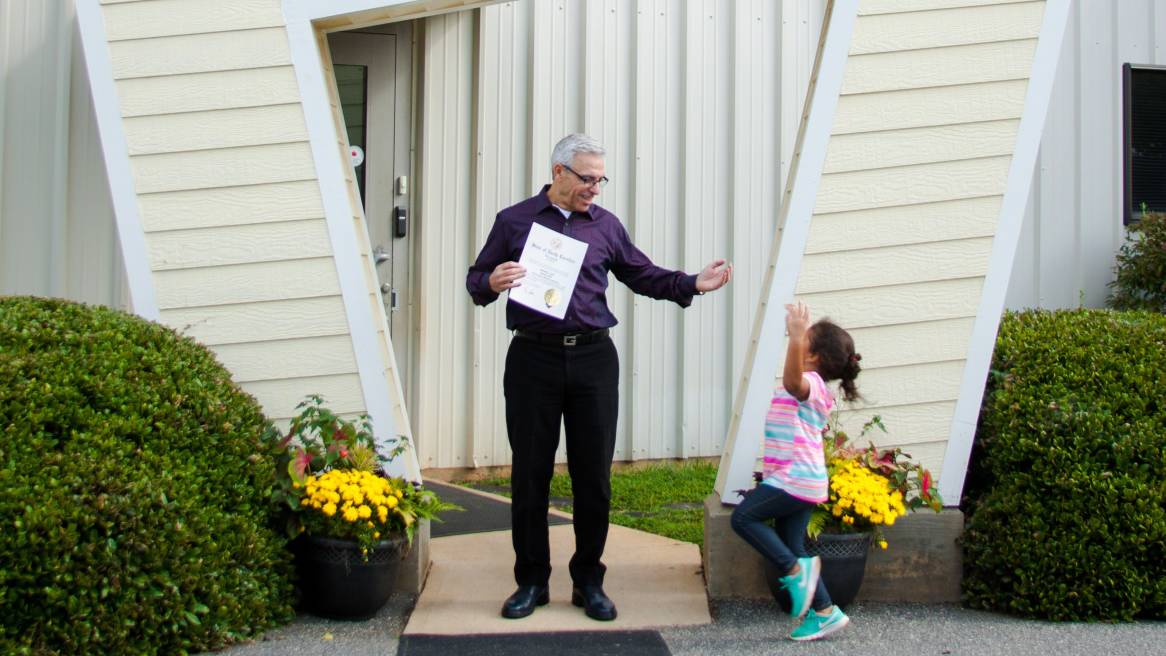Comfort For All
Q&A with Mitchell Gold and Bob Williams
When Mitchell Gold and Bob Williams, co-founders of the North Carolina-based furniture design and manufacturing company of the same name, say they stand for “Comfort for All,” they don’t just mean a luxurious and beautiful sofa—though that’s certainly true. Comfort extends to their people, their families and their community. Driven by a strong ethos to make the world a more comfortable place for everyone, they’ve grown from a startup of 23 employees in 1989 to a family of more than 900 today—proof that their values make good business sense.
360: How does your company’s sense of purpose manifest itself in your business?
Mitchell Gold: Bob and I want everyone in this company to feel they have equal opportunity. We want everyone to know that at work there’s no such thing as discrimination. We are a family business in the sense that we all care about each other. More than 20 years ago, we told our new head of human resources we wanted him to be an advocate for our employees, not a person they feared. People should know they can come and talk to his team. That’s been a really great part of the company.

360: When you started your business, you considered housing your organization’s corporate offices in a new building. Why did you end up deciding to keep them inside your manufacturing plant?
Bob Williams: We wanted everything that we do, whether it’s finance, product development or marketing, to work together. People have to talk to each other. It’s really worked for us. When you’re in the cafeteria, everybody’s together. In fact, in 20 years, I’ll bet we’ve only had a lunch meeting in a conference room three times. When we have guests or board meetings, we all go to the cafeteria because we want to be together.
360: As your business has grown, you’ve emphasized investing in your people, adding benefits like an on-site clinic, a gym and scholarships for employee’s kids. Do these benefits help you realize business objectives?
MG: We respect our employees and, in turn, they respect us. We have really low turnover. Our motto is “Consistently Good Quality, Consistently On Time.” We can only do that with employees who know their job and are here. If you have high turnover, you’re constantly training people. We are able to run very lean because we have a consistent workforce.
BW: How can you justify the cost of some of these things? Instead of looking at them as expenses, we see them as assets because of what they add to the bottom line in terms of productivity.
We are a family business in the sense that we all care about each other.
360: You have an on-site daycare center as well. Why did you decide to take that on?
MG: I was meeting with an employee at 4 p.m. one day and realized halfway through she wasn’t paying attention. I asked why? She said “I have to pick up my son at daycare. If I get there past 5:30, they charge by the minute.” It made me say, “We need a daycare here. We shouldn’t have employees at the end of the day who can’t concentrate.” Lawyers, accountants, insurance people all had reasons why we shouldn’t. But, it’s good for business. It’s one of the best things we’ve done in our career.
BW: The daycare even attracts people who don’t have kids. We’ve had job candidates say, “I figure if you have a daycare, this has to be a good place to work. That’s why I wanted to come here.”

360: You’re both fierce advocates for the LGBTQ community and have received accolades for your bold marketing campaigns featuring diversity. How have you seen this inclusive culture impact your business?
MG: We get incredibly positive comments and I believe we do a lot of business because people have seen our advocacy and philanthropy. They want to buy from a company like ours. Even the bank we borrow money from, our investors, our business partners, they all want to be part of doing good in the world. And, they see it’s helped our profitability. At the end of the day, we want to be role models for vulnerable kids.
360: Do you see evidence that the open and inclusive culture you foster in the workplace encourages your people to contribute ideas and take risks?
MG: We think it’s really important for people to feel comfortable failing. Work is a social activity and that takes trust. We let people know their voice and ideas matter, and ask them to speak their minds. We’re always striving to do more of that, and I think that’s a good thing. And, without a culture that breeds trust and a diversity of ideas, people aren’t going to feel safe trying something even if it doesn’t work. We believe we build on success by learning from failure.

360: You’ve committed to using sustainable materials since you started your company. Why was that so important?
MG: Within a month of starting the company, I read an article about how the ozone is being depleted and that the furniture industry in North Carolina was one of the biggest abusers. I remember calling Bob saying, “We’re going into a business that’s hurting the environment!” That led us down a road to understand what we could do. We tested new kinds of foam, rethought packaging and started sourcing wood from quick-regrowth forests. We wanted to be part of the solution.
360: You’ve said you wouldn’t put anything in your office that you wouldn’t also put in your home. Why is comfort such an important factor in workplace design?
MG: One of our mottos is, “When a home has been furnished successfully, just walking in the door is like getting a hug.” That’s what we think a lot of offices want to be like.


